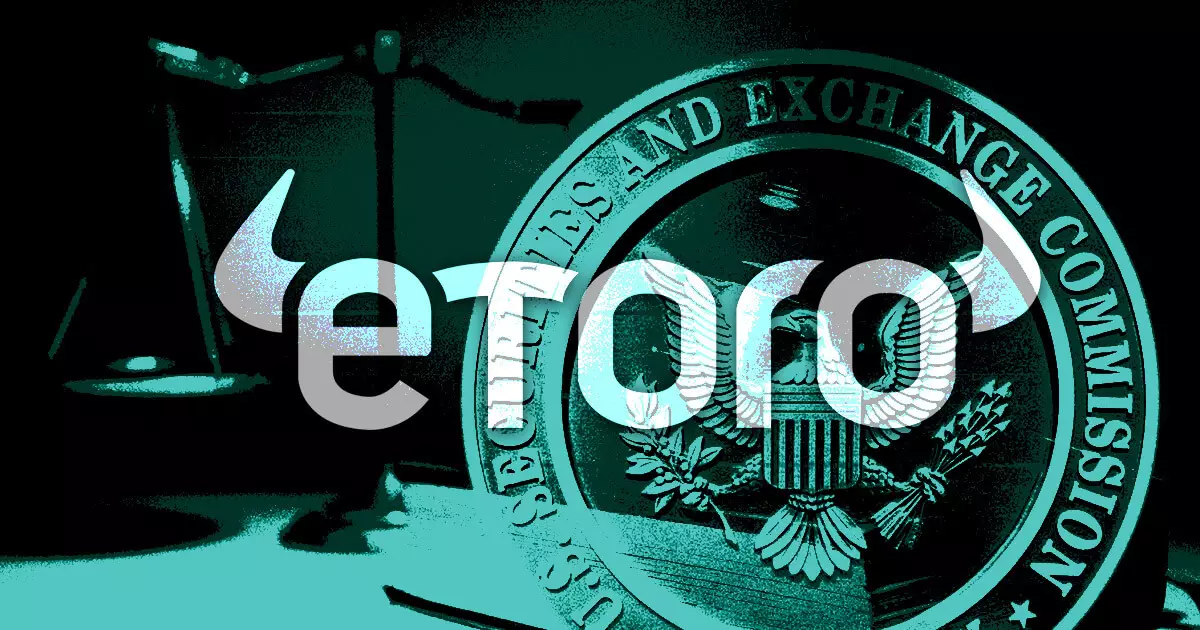In a significant shift, eToro, a well-known trading platform, has announced its decision to limit trading of digital assets to a select few, following a $1.5 million settlement with the U.S. Securities and Exchange Commission (SEC). This action stems from a rigorous investigation initiated by the SEC, which since 2020 has scrutinized eToro’s operations involving U.S. customers trading crypto assets deemed as securities, all while neglecting to adhere to mandatory federal registration protocols.
The investigation uncovered that eToro’s platform had been facilitating trades in numerous digital assets that the SEC considers to fall under the category of securities. This is a considerable issue as it implies that the platform was essentially acting outside U.S. law governing securities trading. While eToro did not explicitly admit to these violations, the financial penalty and subsequent commitment to alter its trading practices suggest an effort to align more closely with federal regulations. This shift is pivotal for a market still grappling with the complexities of crypto regulation.
As part of the settlement terms, eToro is set to restrict its offerings significantly, permitting only a specified few digital currencies like Bitcoin, Bitcoin Cash, and Ethereum. Professional reactions suggest that this will not only impact the platform’s user base, who now have fewer assets to trade, but could also signal a broader trend in the cryptocurrency industry where compliance will dictate operational strategies. Users will be required to make critical decisions about their investments; they can either liquidate their positions or transfer their holdings to an external wallet before strict deadlines. The process of harvesting liquidity from unsupported tokens is set to be completed by March 18, 2025, adding pressure on users to act swiftly.
The scrutiny of eToro fits into a larger narrative of increased regulatory oversight within the cryptocurrency sector, particularly against notable firms such as Binance, Kraken, and Coinbase. The SEC has signaled further actions against other platforms, thereby emphasizing its commitment to enforce securities laws. As echoed by Gurbir S. Grewal, the Director of Enforcement at the SEC, this case serves as a benchmark for other crypto intermediaries navigating the complex regulatory landscape while striving for compliance and fostering safer investment environments.
eToro’s co-founder and CEO, Yoni Assia, has expressed optimism regarding the settlement, viewing it as a foundation for fostering innovation and compliance within the U.S. market. Assia suggests the existence of a more defined regulatory framework in the UK and Europe, which he anticipates will eventually extend to the U.S. This forward-looking perspective underscores eToro’s focus on evolving with regulatory standards while maintaining its service offerings.
In sum, eToro’s recent settlement with the SEC highlights the delicate balance between innovation in the crypto space and adherence to regulatory obligations. As the platform narrows its trading landscape, the implications for both investors and the broader cryptocurrency ecosystem are profound, ushering in a new era where compliance may very well dictate the future operational capabilities of crypto businesses. This recalibration presents both challenges and opportunities, compelling all players in the market to re-evaluate their approaches in light of persistent regulatory scrutiny.



















Leave a Reply